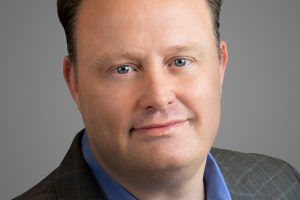
What made you choose Johns Hopkins?
Originally I wanted to be a physician like my mom and, with my love of computers and programming, Biomedical Engineering was for me a pathway to medical school. Johns Hopkins was, and remains, at the forefront of Biomedical Engineering and was an obvious choice. Adding to that the chance to experience Baltimore and Washington D. C. and the amazing opportunities the school has to offer, made Hopkins an easy choice. While my career path changed, I really enjoyed working with doctors and engineers, and rely daily on the foundation from Hopkins that underlies my work today.
Do you have any advice for aspiring engineers?
Being at the cutting edge, as many engineers are, is difficult. There are many long days and nights and you never really know if you are going to enjoy actually being in the field until you have already spent many years and a small fortune to get there. But, unlike many fields, an engineering background lends itself to success in many different arenas – I run into ‘engineers’ in all kinds of different capacities, from traditional roles to c-suite management, investment banking, business development and even financial roles (and of course, as a lawyer). The critical thinking and process orientation of the field is unique, and highly sought after. Thus my first bit of advice is realize that engineering opens up much more than just engineering opportunities.
My second bit of advice is find your success based on your passion. Passion is easy to see and it is infectious – many times clients choose me not because of my skills or my firm, but because of the passion and interest I show in what they are doing. Long term, you will get better opportunities and better success by chasing your dreams instead of whatever is most in demand at the moment – the market will catch up to you!
My third bit of advice, and this can be challenging, is find a way to network. The best opportunities are NEVER advertised. Put yourself out there and talk to people in fields you are interested in. There are many ways to network these days, whether it is in person (once the pandemic is over), giving talks and participating on panels, writing blogs, etc. You don’t have to be the best speaker or the most charming in the room (though this can help), but you do have to be out there, front and center, so that you are in people’s thoughts.
Where are you working now and what do you enjoy about it?
I am currently a partner in the Emerging Companies and Venture Capital group at Perkins Coie – an international, full-service law firm with over 1,100 lawyers. I mainly work with life sciences companies and emerging deep tech opportunities (these days including artificial intelligence and around blockchain). In these areas, I think I take a very different approach to my work compared to a traditional lawyer. Not only am I better able to talk the talk with my clients, I utilize the skills I learned from my engineering background and design thinking when working with a client. Many of my documents are “object-oriented” in the way that they work, improving both precision and efficiency (which is very important in my practice with startup companies who need both, but are on a limited budget both for mindshare and cost). Through my work I get to create meaningful and lasting relationships and support my clients as they grow their companies.
My engineering background lends itself to a better understanding of issues that new technology presents. For example, when AI really became a hot area a few years back there were not a lot of lawyers who understood AI enough to realize that there are unique intellectual property concerns when using someone else’s data to train your algorithm – who owns the result? On more than one occasion we found instances where an entire company’s value proposition had been given away because the person providing the data owned the results.
Why do you choose to stay connected to JHU as an alumnus?
I take immense pride in being an alumnus of Johns Hopkins. Having been one of those that coasted through high school, I was thoroughly unprepared for the challenge that awaited me at Whiting. With some scars to show for it, Whiting taught me humility, patience, and resilience – which I believe contributed to my success at law school and in the real world. I find it inspiring and am so proud that the Whiting School of Engineering continues to find ways to translate their knowledge and discovery into real world applications that reduce people’s suffering. I am pleased in playing a role in supporting the school, its faculty and staff, its students, and its alums.